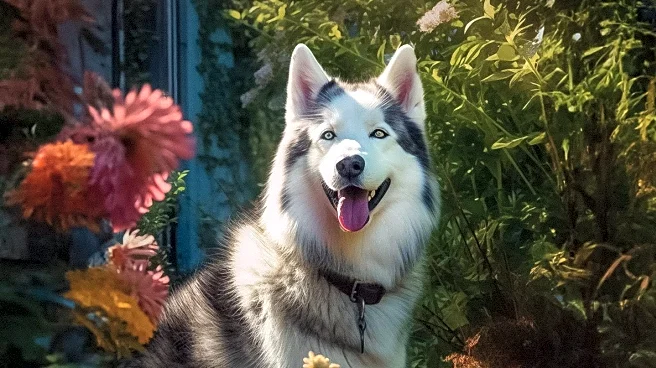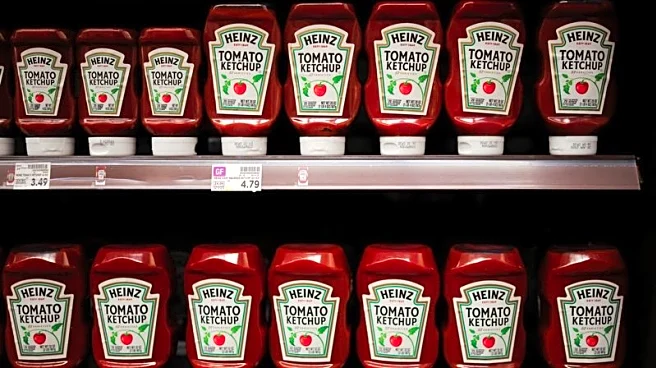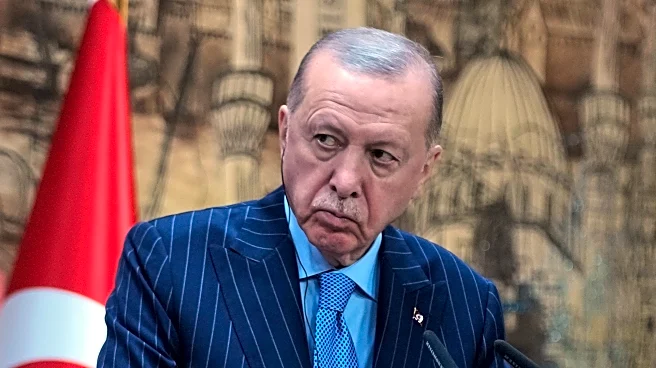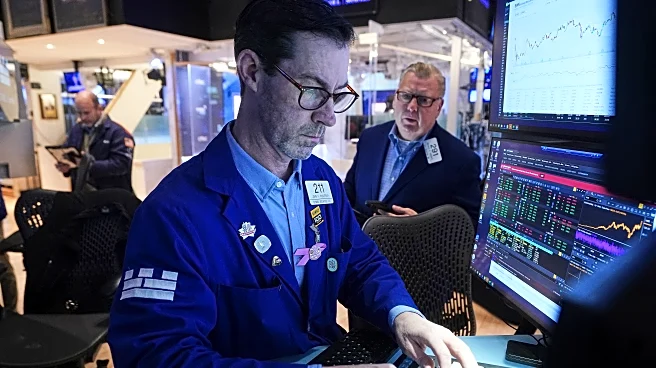What's Happening?
St. John the Divine Cathedral in Manhattan hosted its annual Blessing of the Animals event, drawing hundreds of New Yorkers and their pets. This event, which celebrates the Feast of St. Francis of Assisi, the patron saint of the environment and ecology, included a procession featuring a variety of animals such as a camel, horse, cow, and birds. Pets in attendance, including dogs, turtles, and parakeets, received blessings from the clergy. The event also accommodated those who brought photographs of pets unable to attend due to illness or recent passing. The procession was scaled down this year in response to animal advocates' concerns, with only a few animals provided by an animal talent agency participating.
Why It's Important?
The Blessing of the Animals event highlights the cultural and spiritual significance of pets in many people's lives, treating them as family members deserving of blessings. It also underscores the church's role in community engagement and inclusivity, welcoming diverse participants and their pets. The event's adaptation to animal welfare concerns reflects a growing awareness and sensitivity towards ethical treatment of animals, balancing tradition with modern ethical standards. This approach may influence other institutions to consider similar adjustments in their practices.
What's Next?
Future iterations of the event may continue to evolve in response to feedback from animal advocates and participants. The church might explore alternative ways to honor the patron saint of animals without involving live animals, potentially setting a precedent for other religious and cultural events. Ongoing dialogue between the church and animal welfare groups could lead to innovative practices that respect both tradition and animal rights.
Beyond the Headlines
The event raises broader questions about the role of animals in religious and cultural ceremonies, prompting discussions on ethical considerations and the evolving relationship between humans and animals. It also reflects a societal shift towards more humane treatment of animals, which could influence public policy and community practices beyond religious contexts.












